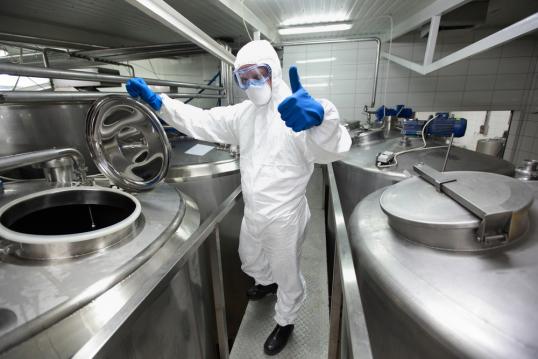Most companies have temporarily altered their working practices, for example switching their staff to teleworking and moving all meetings online. For businesses in some sectors, this transition has been smooth, but for others, it has not been so simple. For many small and medium-sized enterprises (SMEs), it has been essential to react quickly to the changes in supply and demand.
If you are an employer, you may be looking for inspiration on how to adapt and plan for a future beyond COVID-19. Here are some examples of SMEs and startups that have been adapting their activities effectively:
- Valencia-based SME Jeanologia provides eco-friendly finishing treatment for clothing. During the crisis, it has been sanitising and disinfecting protective face masks for hospitals – around 15,000 masks each day. The company’s founder says the business is already planning for the period after COVID-19, when sanitisation of clothing will be in high demand and sustainable, eco-friendly production will be essential.
- Dydu, a French business that specialises in chatbot software, is offering personalised chatbots that come equipped with a selection of frequently asked questions to help human resource teams support their staff. Although the chatbot itself is free, Dydu is building up a wider client base for the future, while helping other businesses deal with the crisis.
- Veoleo Press, a small publisher of Spanish-language educational books for children, quickly identified the need to support home learning while schools remain closed. It has collaborated with artists to produce colouring sheets, offered on a pay-as-you-feel basis, to help parents continue teaching Spanish at home. As part of its extensive response to the crisis, Veoleo is also offering video learning and new online content.
- 10-Vins is a French startup that produces specialised machines that regulate temperature and aeration to optimise wine tasting. Before the crisis, most of its sales were to businesses with professional sommeliers. However, 10-Vins is now targeting private customers following the closure of bars and restaurants, prioritising sales to wine lovers who want to enjoy high-quality wine at home during the lockdown. It has also set up two online training courses for people interested in wine making.
- Similarly, 58-Gin lost its main client base – bars and pubs – due to the lockdown. It made the difficult decision to stop producing its artisanal gin, but identified a need for another kind of alcohol-based product to support the battle against COVID-19: hand sanitiser. The business was able to adapt quickly, as much of the production process is similar to that of gin and the base ingredient – alcohol – is the same.
- Oura Health is a Finnish startup that produces so-called “wellness rings” that track the body’s heart rate, breathing and temperature. Oura Health realised its technology could provide early warning of COVID-19 symptoms after being contacted by one of its customers who had tested positive for the virus. The startup has now collaborated on a study with the University of California San Francisco, supplying 2,000 nurses with its wellness rings and receiving similar requests from around the world.
For Oura Health, as for many of these examples, the benefits are not just financial. These businesses are offering solutions to the problems caused by this virus, while at the same time diversifying their business and building up a strong reputation for the future.
Related links:
How the Spanish industry is facing COVID-19
Dydu
Crisis communication: the benefits of a chatbot
Veoleo’s response to COVID-19 quarantine
10-Vins
Coronavirus: comment 10-Vins pallie la baisse d'activité dans l'hôtellerie-restauration (article in French)
58-Gin
How factories change production to quickly fight coronavirus
How Covid-19 accelerated the success of Nordic tech in the US
Read more:
Find EURES Advisers
Living and working conditions in EURES countries
EURES Jobs Database
EURES services for employers
EURES Events Calendar
Upcoming Online Events
EURES on Facebook
EURES on Twitter
EURES on LinkedIn
Details
- Publication date
- 2 June 2020
- Authors
- European Labour Authority | Directorate-General for Employment, Social Affairs and Inclusion
- Topics
- Business / Entrepreneurship
- External EURES news
- External stakeholders
- Labour market news / mobility news
- News/reports/statistics
- Recruiting trends
- Youth
- Related section(s)
- Sector
- Accomodation and food service activities
- Activities of extraterritorial organisations and bodies
- Activities of households as employers, undifferentiated goods- and services
- Administrative and support service activities
- Agriculture, forestry and fishing
- Arts, entertainment and recreation
- Construction
- Education
- Electricity, gas, steam and air conditioning supply
- Financial and insurance activities
- Human health and social work activities
- Information and communication
- Manufacturing
- Mining and quarrying
- Other service activities
- Professional, scientific and technical activities
- Public administration and defence; compulsory social security
- Real estate activities
- Transportation and storage
- Water supply, sewerage, waste management and remediation activities
- Wholesale and retail trade; repair of motor vehicles and motorcycles
